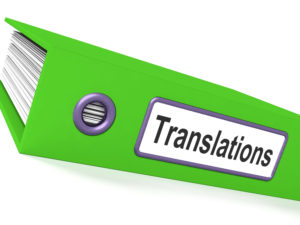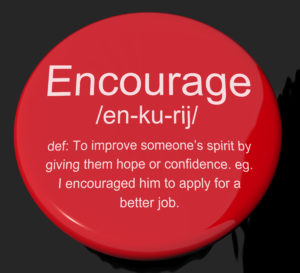Throwback Thursday – sharing some of our great older posts that still are important today!
~ * ~
Book trailers are videos posted online and distributed via video networking sites like YouTube. These can be big budget blockbuster movie clips, or budget MovieMaker slides to music. You can make it an advert or a social media fun clip that people want to watch. It can be a human interest story made more like a documentary. It can be a cartoon. Essentially, it is anything you want it to be. Anything that catches people’s attention.
You can get a professional to make you one or you can make your own for little or no money. I made this one with Windows Movie Maker (which is on on most PCs). It took me several hours but was essentially free, and you don’t have to be too techy to make one too. Here are the steps you need.
1. Research other book trailers that are similar to what you would like to do. Just search for book trailers on YouTube. decide what you like and don’t like (and what is within your capacity and budget)
2. Write a brief script for the trailer so you can get it straight in your head and understand what images and text you will need ( I just did this on Microsoft Word)
3. Find and download images to match your words. You can use your own or get free ones online by googling “royalty free photo”. I use iStockPhoto which I find easy to use with a variety of pictures and I did pay a small amount for some photos. You can also use movie clips (which I am still learning about!)
4. Import the pictures into Windows MovieMaker (File -> Import Media)
5. Order the pictures.Drag them into the movie bar at the bottom of the screen in the order you want. Right click and Cut to remove again. Basic drag and drop functionality. Remember to save regularly!
6. Add script by clicking on the picture in the movie bar and then clicking Edit -> Titles and Credits. You can add text in various styles, colours and transition effects here. You can add text before, on top of or after your picures.
7. Edit.Once you have got the basic pictures and text setup, see how long your movie is. Most book trailers are no longer than 1 minute 30 seconds. Edit as necessary by clicking and dragging the size of the boxes to shorten the time frame they show on the screen.
8. Find music to match the length of your movie (or cut to fit). I used SoundSnap.com but you can google “royalty free music” to find other sites. I searched on audio length within classical music and listened to a few before choosing.
9. Check you are happy with everything and then Publish your movie to your computer.
10. Find tags.Now you have a file you can publish it to the internet movie sites to get some viewers. You need to know what tags you want to add to your video when you upload it, so I suggest you also research what people are searching on in your genre. I use Google Keyword Search which has a number of tools and recommended related words.
11. Upload your video to appropriate sites.
I have loaded mine to YouTube and Google Video so far. It takes some time per site, unless you use a video submission site like TrafficGeyser which is expensive and really only for companies with lots of video. You can submit manually to sites like Revver, MySpaceTV, Metacafe, Yahoo Video, Book Trailers, AuthorsDen. No doubt there are many more! Remember to also use the embed links to post to your own website, blog and social networking sites.
It’s easier than you think to get a video book trailer on YouTube! Let us know how it goes!
Reposted from http://www.TheCreativePenn.com : Writing, self-publishing, print-on-demand, internet sales and promotion…for your book.
 I’ll be the first to admit that there’s a serious problem with romantic relationships in literature nowadays.
I’ll be the first to admit that there’s a serious problem with romantic relationships in literature nowadays.
 I have done fantasy stories in the past, that involved some world building but since the world was sort of ye old English based, world building wasn’t that difficult. This year I am doing a science fiction story that takes place in earths future. It is not dystopian! Yet. Actually, we were about to make a huge mess with huge pollution issues and bad weather juju due to global warming when the aliens come and save us. But they don’t look at us like equals, and not even really like pets. They aren’t sure what to do with us on the very back water of the galaxy and we are so primitive to them. They do save us from ourselves and life is good. For now.
I have done fantasy stories in the past, that involved some world building but since the world was sort of ye old English based, world building wasn’t that difficult. This year I am doing a science fiction story that takes place in earths future. It is not dystopian! Yet. Actually, we were about to make a huge mess with huge pollution issues and bad weather juju due to global warming when the aliens come and save us. But they don’t look at us like equals, and not even really like pets. They aren’t sure what to do with us on the very back water of the galaxy and we are so primitive to them. They do save us from ourselves and life is good. For now. Let’s start with some cold reality: My 2017 Q2 sales report is in.
Let’s start with some cold reality: My 2017 Q2 sales report is in.
 Psychologists differentiate between outcome goals (write a book) and process goals (the steps it will take to write a book). The outcome goal focuses on the big picture and the end result—a diamond-studded World Series ring, an Emmy, the winner’s circle at the Kentucky Derby.
Psychologists differentiate between outcome goals (write a book) and process goals (the steps it will take to write a book). The outcome goal focuses on the big picture and the end result—a diamond-studded World Series ring, an Emmy, the winner’s circle at the Kentucky Derby.


 by
by Imagine you walk into a candy shop, but what you discover inside, instead of candy, is display after display of subplots. Enough to make any writer’s mouth water, right? Writers love the idea of subplots. They’re rich, juicy, complex, and full of opportunities for taking your story to the next level. But organizing subplots, or even just figuring out what your subplots are? That can sometimes be trickier.
Imagine you walk into a candy shop, but what you discover inside, instead of candy, is display after display of subplots. Enough to make any writer’s mouth water, right? Writers love the idea of subplots. They’re rich, juicy, complex, and full of opportunities for taking your story to the next level. But organizing subplots, or even just figuring out what your subplots are? That can sometimes be trickier. I’ve spent more than three decades writing novels. And at first I had no clue what I was doing.
I’ve spent more than three decades writing novels. And at first I had no clue what I was doing. Usually accompanied by a date when the supposed re-edit took place. And my first thought is what a shame and a waste. Here is someone who didn’t take the time, for whatever reason, when they first put their book up on Amazon to hire a professional editor. People complained because if a book is horribly edited they will complain and take stars off. The author listened to the complaints, which is a good thing, and got professional editing.
Usually accompanied by a date when the supposed re-edit took place. And my first thought is what a shame and a waste. Here is someone who didn’t take the time, for whatever reason, when they first put their book up on Amazon to hire a professional editor. People complained because if a book is horribly edited they will complain and take stars off. The author listened to the complaints, which is a good thing, and got professional editing.
 We all make mistakes. It’s how people learn. But some new writer mistakes can end a writing career before it starts. They play into the hands of the predators who make money off the delusions of newbie writers.
We all make mistakes. It’s how people learn. But some new writer mistakes can end a writing career before it starts. They play into the hands of the predators who make money off the delusions of newbie writers.